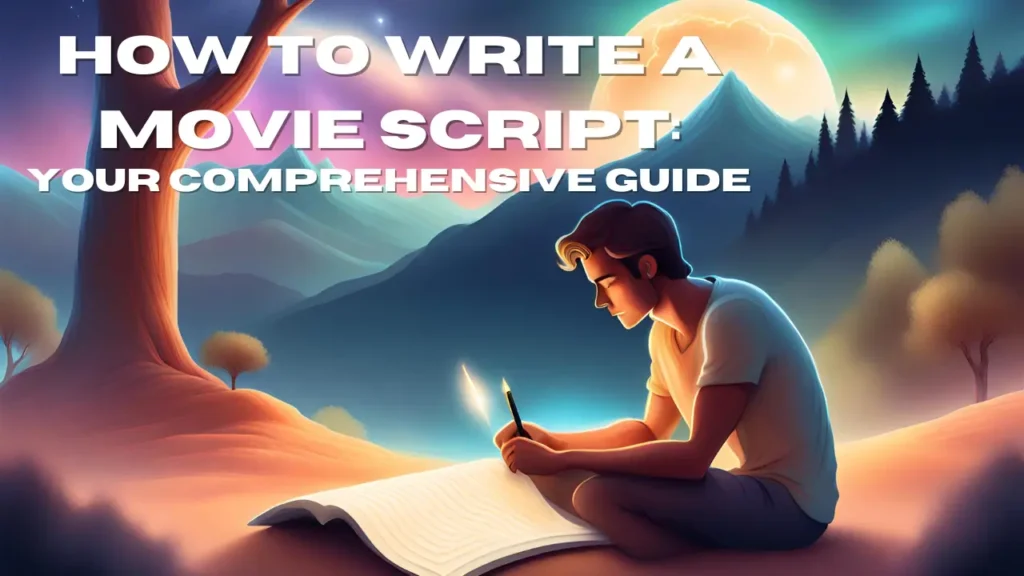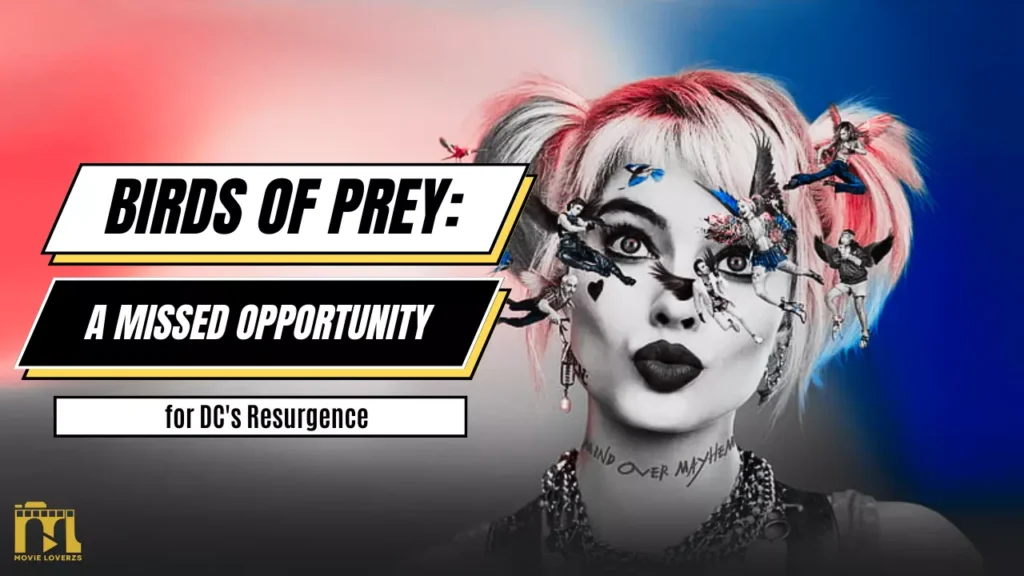Table of Contents
ToggleComedy filmmaking is an art form that requires a unique set of skills to master.
Read more about Comedy films on Wikipedia.
From writing witty scripts to creating hilarious scenes, it takes a lot of hard work and dedication to create a successful comedy film.
Hey, have you ever thought about adding some action to your comedy films? It can really take your movies to the next level! I recently wrote an article called “Filmmaking 101: Master Action Filmmaking – Your Ultimate Guide to Success!” It’s a comprehensive guide where I spill all the secrets of crafting a movie that will have your audience on the edge of their seat. I think you’ll find it really helpful. Check it out!
In this guide, we will explore the different aspects of comedy filmmaking and provide tips and tricks that will help aspiring filmmakers create a comedy masterpiece.
Understanding the Comedy Genre
Before diving into comedy filmmaking, it’s important to understand the different types of comedy and what makes them successful. There are several types of comedy, including:
- Slapstick comedy: This type of comedy relies on physical humor, exaggerated actions, and funny facial expressions to make the audience laugh. Examples of slapstick comedy include The Three Stooges and Mr. Bean.
- Satire comedy: Satire comedy uses irony, sarcasm, and exaggeration to poke fun at societal issues. Examples of satire comedy include The Daily Show and The Colbert Report.
- Parody comedy: Parody comedy is a type of comedy that imitates a popular film, TV show, or cultural phenomenon to create a humorous spin-off. Examples of parody comedy include Scary Movie and Shaun of the Dead.
- Black comedy: This type of comedy uses dark, often taboo, subjects to create a humorous spin on serious issues. Examples of black comedy include Fargo and Dr. Strangelove.
Understanding the different types of comedy is crucial to creating a successful comedy film. Choose a type of comedy that suits your style and audience, and stick to it throughout the film.
Writing a Comedy Script

The script is the backbone of any film, and the same is true for comedy films. Writing a comedy script requires a certain level of wit and humor, and there are a few things to keep in mind when writing a comedy script:
- Create relatable characters: The audience needs to connect with the characters in the film to find them funny. Create characters that are relatable and have flaws that the audience can identify with.
- Use humor to advance the plot: Comedy should not be used just for the sake of being funny. Use humor to advance the plot and create tension in the story.
- Use comedic timing: Timing is everything when it comes to comedy. Use pauses and beats to create comedic timing within the script.
- Test the jokes: What may be funny to you may not be funny to everyone. Test your jokes on a focus group or friends to gauge their reaction and adjust the script accordingly.
Casting the Right Actors
Casting the right actors is crucial to the success of a comedy film. Look for actors that have a natural sense of humor and can bring the characters to life.
The chemistry between the actors is also important, as it can create a natural back-and-forth that enhances the humor in the film.
Creating Hilarious Scenes
Comedy films are all about creating hilarious scenes that leave the audience in stitches. There are a few things to keep in mind when creating scenes:
- Use physical comedy: Physical comedy is a great way to create laughs. Use exaggerated movements and actions to create a comedic effect.
- Use surprise: Surprise is a powerful tool in comedy. Create unexpected twists that catch the audience off guard and make them laugh.
- Use callbacks: Callbacks are a great way to tie the film together and create a sense of continuity. Use callbacks to reference earlier scenes and create a sense of familiarity for the audience.
- Use humor to create tension: Tension can be created through humor. Use humor to create a tense situation that the audience can laugh at.
Comedy Filmmaking: Tips for Creating Hilarious Films

- Unleash Your Creative Juices: Comedy is all about thinking outside the box and embracing your unique style. Let your imagination run wild and explore unconventional ideas that will make your film stand out from the crowd.
- Know Your Audience: Understanding your target audience is crucial when it comes to comedy filmmaking. Different age groups, cultures, and demographics have varied tastes in humor. Tailor your jokes and comedic elements to resonate with your intended viewers.
- Craft an Engaging Script: The foundation of a hilarious film lies in a well-crafted script. Spend ample time brainstorming, developing characters, and structuring your story. A strong script sets the stage for comedic brilliance.
- Embrace the Element of Surprise: Comedy thrives on surprises. Incorporate unexpected twists, turns, and punchlines to keep your audience on their toes. Avoid predictable gags and opt for the element of surprise to deliver laughter-inducing moments.
- Master Timing and Pacing: Timing is everything in comedy. Perfecting the comedic rhythm requires practice and precision. Experiment with pacing, pauses, and delivery to enhance the comedic impact of your scenes.
- Harness the Power of Visual Comedy: Visual humor can be just as effective as verbal jokes. Utilize slapstick comedy, physical gags, and visual puns to add another layer of hilarity to your film. Actions often speak louder than words!
- Utilize Wordplay and Verbal Jokes: Clever wordplay and witty dialogue are essential ingredients in comedy filmmaking. Play with language, puns, and double entendres to create humorous moments that will leave your audience chuckling.
- Leverage Situational Comedy: The situations your characters find themselves in can be a goldmine for comedy. Create humorous scenarios, misunderstandings, and awkward encounters that will have your audience in stitches.
- Employ Callbacks and Running Gags: Callbacks and running gags are comedic devices that reference previous jokes or recurring elements throughout your film. They create a sense of familiarity and connect your audience to the humor on a deeper level.
- Casting is Key: The success of a comedy film often hinges on the actors’ ability to deliver humor effectively. Choose performers who have a natural knack for comedy and can bring your script to life with impeccable comedic timing.
- Don’t Overexplain the Jokes: Trust your audience’s intelligence and avoid spoon-feeding them explanations for every joke. Subtlety and nuance can amplify the comedic impact, so allow your viewers to connect the dots and discover the humor themselves.
- Use Physicality and Facial Expressions: Body language and facial expressions can enhance the comedic effect of your film. Encourage your actors to exaggerate their movements and reactions, adding an extra dose of hilarity to the scenes.
- Music and Sound Effects: Don’t underestimate the power of music and sound effects in comedy. The right soundtrack and sound cues can amplify the comedic effect and elicit uproarious laughter from your audience. Music can set the tone, create anticipation, and enhance comedic moments with its rhythmic beats and melodies.
- Test and Refine Your Comedy: Comedy is subjective, and what may be hilarious to one person may not resonate with another. Conduct test screenings or share your work with a focus group to gather feedback. Use constructive criticism to refine your comedic elements and make necessary adjustments.
- Take Inspiration from the Masters: Study the works of legendary comedy filmmakers to learn from the best. Whether it’s Charlie Chaplin’s physical comedy or the witty banter of the Marx Brothers, draw inspiration from comedic geniuses who have paved the way for laughter on the silver screen.
- Inject Realism into Your Characters: While comedy often thrives on exaggeration and absurdity, grounding your characters in relatable traits and emotions adds depth to the humor. Explore the quirks and flaws of your characters, allowing the audience to connect with them on a personal level.
- Collaborate with a Talented Crew: Filmmaking is a collaborative process, and comedy is no exception. Surround yourself with a dedicated and talented crew who understand your comedic vision and can contribute their expertise to enhance the humor in every aspect of the film.
- Edit with Precision: Editing plays a vital role in shaping the comedic timing and flow of your film. Experiment with different cuts, pacing, and juxtapositions to maximize the comedic impact of each scene. Use editing techniques to heighten the humor and create seamless transitions.
- Keep It Fresh and Relevant: Comedy evolves with time, and what was once considered funny may not elicit the same response today. Stay updated with current trends, pop culture references, and social issues to infuse your comedy with freshness and relevance that resonates with contemporary audiences.
- Trust Your Instincts: Ultimately, comedy filmmaking is an art form that requires a balance between calculated precision and instinctive creativity. Trust your comedic instincts and take risks. Don’t be afraid to push boundaries and challenge the status quo to create truly memorable and hilarious films.
Filming and Editing
Filming and editing are crucial to the success of a comedy film. There are a few things to keep in mind when filming and editing:
- Use wide shots: Wide shots allow the audience to see the physical comedy and exaggerated actions.
- Use close-ups: Close-ups allow the audience to see the facial expressions and reactions of the actors.
- Use music: Music can enhance the humor in a scene. Use music to create a comedic effect or enhance a joke.
- Use pacing: Pacing is important in comedy. Use quick cuts and fast-paced editing to create a sense of energy and excitement.
FAQs
How important is timing in comedy filmmaking?
Timing is paramount in comedy filmmaking. It can make or break a joke. Perfecting the timing ensures that the punchline lands at the right moment, maximizing its comedic impact.
Can anyone be a comedy filmmaker?
While anyone can dabble in comedy filmmaking, it takes a unique blend of creativity, wit, and understanding of humor to excel in this genre. It requires honing the craft, studying comedic techniques, and continuously refining one’s skills.
How can I find my comedic voice as a filmmaker?
Finding your comedic voice requires experimentation and self-discovery. Embrace your own sense of humor, explore different comedic styles, and analyze what makes you laugh. Allow your unique perspective and experiences to shape your comedic voice.
Is it necessary to have a big budget for comedy filmmaking?
While a larger budget can provide more resources and production value, comedy filmmaking is not solely dependent on budget. Creativity, writing, and talent play significant roles in creating hilarious films, regardless of the budget.
How can I ensure that my comedy appeals to a wide audience?
Understanding your target audience is crucial. While not every joke will resonate with everyone, aim for universal themes and relatable situations. Finding a balance between broad humor and subtle nuances can help your comedy reach a wider audience.
Can comedy be offensive?
Comedy walks a fine line between humor and offensiveness. It’s important to be mindful of cultural sensitivities, avoid perpetuating harmful stereotypes, and ensure that your comedy doesn’t target or marginalize any specific groups. Comedy should aim to bring people together and create laughter, rather than causing harm or offense.
Conclusion
In conclusion, comedy filmmaking is an art form that requires a unique set of skills to master. Understanding the different types of comedy, writing a witty script, casting the right actors, and creating hilarious scenes are all crucial to creating a successful comedy film. By following these tips and tricks, aspiring filmmakers can create a comedy masterpiece that will leave audiences laughing for years to come.






